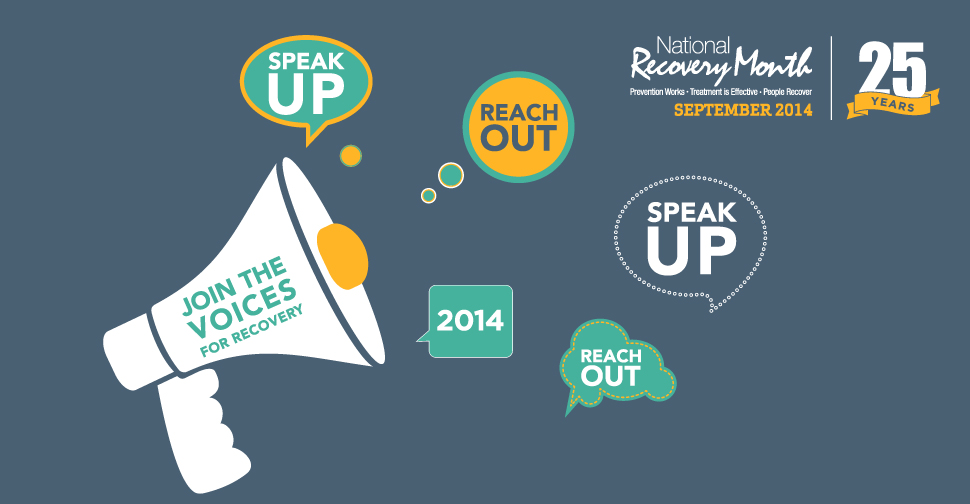For years, Mike Barry was the face of television news in Lexington, Kentucky. The popular anchor for WLEX-TV graced billboards with his on-air image of charisma and confidence.
But while his public profile was rising, Barry was falling deeper into addiction. The ravages of alcoholism eventually left him jobless, broke, divorced and living in a Louisville homeless shelter.
Barry’s second act is a testament to the power of recovery. Today, he’s one of more than 23 million Americans who have achieved freedom from addiction.
“I haven’t used drugs or alcohol in 20 years,” says Barry, who is also a leader in the national recovery movement. He is the current Board Chair of Faces & Voices of Recovery in Washington, D.C., and serves as Chief Executive Officer of People Advocating Recovery (PAR), Kentucky’s statewide recovery community organization.
“My long term recovery has given me stability and a new purpose in life free of irrational fears,” Barry says. “Like every human being, I have doubts, fears, and disappointments – but what I have learned from recovery is that my attitude about everything determines my actions toward them. It’s much more than being free of addiction. It’s a new way of living and enjoying life.”
Speak Up, Reach Out
This year marks the 25th Anniversary of National Recovery Month (held in September but with ongoing recovery movements yearlong). The theme, “Join the Voices for Recovery: Speak Up, Reach Out” encourages people to openly discuss mental and substance use disorders and the reality that people do recover from addiction.
You can share your own recovery story, or read about the remarkable journeys of others, at: http://recoverymonth.gov/Voices-for-Recovery.aspx
“We are celebrating the strides our nation has made in successfully promoting the power of recovery from mental and substance use disorders,” says Dr. H. Westley Clark, Director of the Center for Substance Abuse Treatment at the Substance Abuse and Mental Health Services Administration (SAMHSA). “Through National Recovery Month and other efforts, we can help bring hope to all people with unmet needs so that they can return to full, productive lives.”
Michael Botticelli, Acting Director of the White House Office of National Drug Control Policy (ONDCP), participated in this year’s Rally for Recovery, a national event held in Louisville to celebrate recovery from substance use disorders.
The Real Face of Addiction
Removing the stigma and discrimination associated with addiction is central to the growing national advocacy movement on recovery.
“Particularly in the past, there were widespread misconceptions about what people with substance use disorders looked like, and these were often manifested in media depictions,” says Clark. “The truth is that everyone from every fact of life can have substance use problems. Increasingly people are becoming aware that substance abuse can affect everyone in the community – even a friend, loved one or themselves.”
Clark’s team at SAMHSA is working with the entertainment industry to quash harmful stereotypes about addiction. The goal, he says, is to move toward realistic depictions that portray the universal nature of substance use disorders. More people will seek help for addiction, experts say, when they are not viewed as the scum of society.
SAMHSA and the Entertainment Industries Council aired a live webcast in August to educate script writers, producers and directors “about the importance of accurately portraying characters dealing with behavioral health issues and utilizing fair and correct terminology to help mitigate discrimination against people in recovery,” Clark says.
Recovery organizations are also working to revise state penal codes to address addiction as a health issue, not a criminal issue.
“Decades of research teach us that addiction is a disease of the brain resulting from exposure to drugs and shaped by environmental and genetic factors,” says Dr. Jack Stein, Director of the Office of Science Policy and Communications for the National Institute on Drug Abuse (NIDA). “Despite stereotypic portrayals, the face of addiction is as diverse as our nation.”
“Advances in science have revolutionized our approach to prevention, treatment, and long-term recovery,” Stein adds. “Putting the science to work remains a challenge, and Recovery Month is a perfect opportunity to help do so.”
Resources for Recovery
If you or someone you care about struggles with drug and alcohol problems, help is available. Here are some resources to support recovery from addiction:
HELP HOTLINES
- 1-800-NCA-CALL (800-622-2255)
- 24-hour helpline sponsored by the National Council on Alcoholism and Drug Dependence.
- 1-800-344-2666
- Al-Anon, for families/loved ones of problem drinkers
- 1-833-473-4227
- 24-hour hotline of drugrehab.org, providing free and confidential referrals to rehab centers nationwide
- 1-800-662-HELP (4357)
- 24-hour National Drug and Alcohol Abuse Hotline offering information and referral services to people seeking treatment and other assistance; sponsored by the Center for Substance Abuse Treatment (CSAT)
MUTUAL AID/SUPPORT GROUPS
These websites provide an extensive list of mutual aid organizations, 12-step programs and other support resources for people with drug and alcohol addiction:
- http://www.facesandvoicesofrecovery.org/guide/support/
- https://ncadd.org/recovery-support/mutual-aid-support
- http://www.addictionsurvivors.org/
- http://recoverymonth.gov/Recovery-Month-Kit/Resources/Recovery-Month-Resources.aspx
SELF-TESTS FOR DRUG AND ALCOHOL ADDICTION
- https://ncadd.org/learn-about-alcohol/alcohol-abuse-self-test
- https://ncadd.org/index.php/learn-about-drugs/drug-abuse-self-test
These simple online self-assessments are designed to help you determine if you or someone you know has a problem with alcohol or drugs. Developed by the National Council on Alcoholism and Drug Dependence (NCADD). More than 700,000 people contacted NCADD and its affiliates for help in 2013.
RETHINKING DRINKING
http://rethinkingdrinking.niaaa.nih.gov/
Strategies on how to change your drinking pattern – with tips to build alcohol refusal skills and cope with cravings. Sponsored by the National Institute on Alcohol Abuse and Alcoholism (NIAAA).
TREATMENT GUIDE Q&A
http://www.drugabuse.gov/publications/seeking-drug-abuse-treatment-know-what-to-ask/introduction
Reviews questions to ask when searching for a rehabilitation program. A free publication from the National Institute on Drug Abuse (NIDA).



